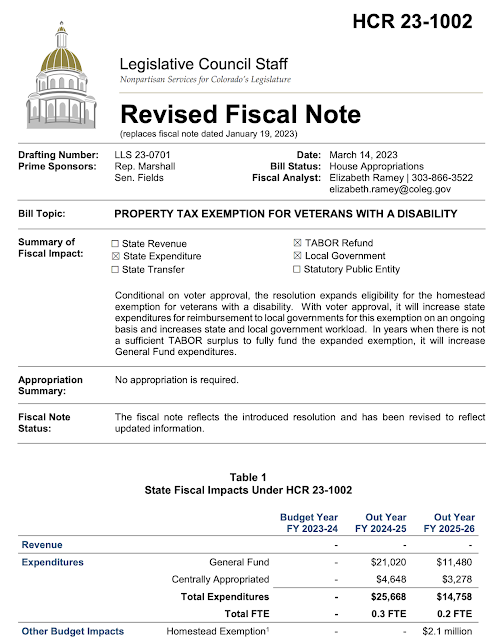Yes. Absolutely submit a VA disability claim!
"It's a fact aircrews know well. Service members who work in and around aircraft are more likely to suffer hearing deficits!" (VA publication)
Aircrew duty in a C-123, C-130 and other military aircraft frequently causes (or worsens) hearing loss and/or ringing in the ears (tinnitus.) Hearing loss is the most common disability claimed by veterans and it is serious. Hearing loss and tinnitus is usually permanent, cumulative, and worsens with aging well past the years of your military service.
When a veteran submits a claim, the VA arranges a hearing test (a "Compensation and Pension Exam.") Then, if the problem meets VA standards, the vet is granted a disability rating, typically ten percent. In 2024 that's about $171 per month, tax-free, for the rest of your life. They also provide medical care with free audiology exams and high-end hearing aids if required. The compensation dates from the day VA receives a claim, so it makes sense to apply immediately if you believe you have the problem. Claims can be submitted on-line or by mail. Major veterans organizations such as DAV, VFW and the American Legion offer free claims assistance, as do all state veterans service departments and most counties.
It is important to know hearing problems can also lead to other, even more serious disabilities. The VA considers these "secondary conditions." Linking these secondary conditions to the initial hearing loss disability can lead to an increased overall disability rating, vital VA medical care for those problems and greater monthly compensation.
Example: My college roommate had an incident during Army Reserve basic training in 1969 which affected his hearing and was documented. However, that documentation was misfiled into his dental records. Over the years following military service the hearing loss increased greatly and he was convinced (he resisted years of my urging!) to submit a VA disability claim. He was initially granted a 30% disability rating due to the severity of the hearing problem but his secondary condition of depression related to hearing loss lead to a 100% total disability rating. He initially received a check for around $32,000 and qualified for full federal and state veterans benefits, something Reservists and National Guard personnel don't usually qualify for without active duty service.
This was a significant financial benefit, much needed in his situation. I referred him to Katrina Eagle, an experienced veterans attorney who discovered the "lost" Army documentation for the original 1969 hearing injury, and she convinced the VA to make this veteran's 100% disability rating retroactive - to 1969! The final check for that backdated VA compensation was well over $100,000.
That was certainly an unusual situation, but secondary conditions are important for the VA to address, both in medical care and compensation. Let's look at hearing injury secondary conditions:
Secondary Conditions Related to Aviation Tinnitus or Hearing Loss:
Migraine Headache Conditions Secondary to Tinnitus or Hearing Loss:
Veterans, especially combat vets and aircrews, frequently suffer from tinnitus and also may experience secondary conditions such as migraine headaches. Migraine headaches are characterized by intense pain, nausea, vomiting, sensitivity to light and sounds, lightheadedness, and blurred vision. This can occur due to sensory stimulation from their tinnitus symptoms. In some cases, the intensity of their tinnitus may trigger a migraine attack. It is important to note that migraines can be debilitating and last from hours to days, depending on the veteran. Estimates are that 27% of vets with hearing deficits also suffer migraines.
Depression Secondary to Tinnitus or Hearing Loss:
Veterans suffering from tinnitus or hearing loss may also experience depression as one of the secondary conditions related to their tinnitus. Depression is a serious mental health condition that affects how one thinks, feels, and acts. Common symptoms of depression can include persistent sadness, worthlessness, and hopelessness; lack of motivation or interest in activities; difficulty sleeping and concentrating; changes in appetite resulting in weight loss or gain; irritability; and fatigue. It is important that vets who are experiencing depression due to their tinnitus reach out and seek help from a mental health professional.
Anxiety Secondary to Tinnitus or Hearing Loss:
Veterans suffering from tinnitus or hearing loss may also experience anxiety as a secondary condition. Anxiety is a psychological disorder that can cause intense fear, worry, and uneasiness. Common anxiety symptoms include increased heart rate, difficulty breathing, sweating, trembling or shaking, feeling overwhelmed by stress, and avoidance of certain situations due to fear. It is important to note that anxiety can be debilitating and should not be taken lightly.
Sleep Apnea Secondary to Tinnitus or Hearing Loss:
Veterans suffering from tinnitus may also experience the secondary condition of sleep apnea. Sleep apnea is a serious medical disorder that can cause an individual to stop breathing for short periods during sleep. Common sleep apnea symptoms include snoring, difficulty falling and staying asleep, excessive daytime sleepiness, fatigue, and morning headaches.
How did we get into the situation where military service injured our ears? For most, it was because we were placed into an extremely noisy work environment where we usually lacked adequate hearing protection. Working aboard aircraft, on runways, firing weapons, all hazardous noise situations. For most of the last century, military "experts" weren't worried about hearing hygiene as they believed hearing loss recovered after exposure. They were wrong. That's why hearing loss is the #1 disability claim by veterans.
If the years have left you wondering what other people say at dinner, or if the grandchildren complain the TV is too loud, or if you have ringing in the ears, get your VA claim filed today!

























